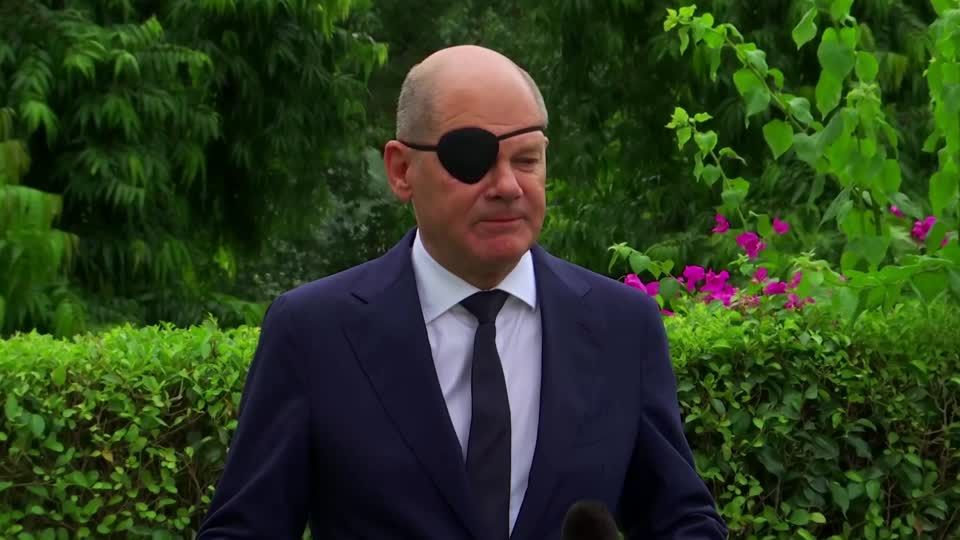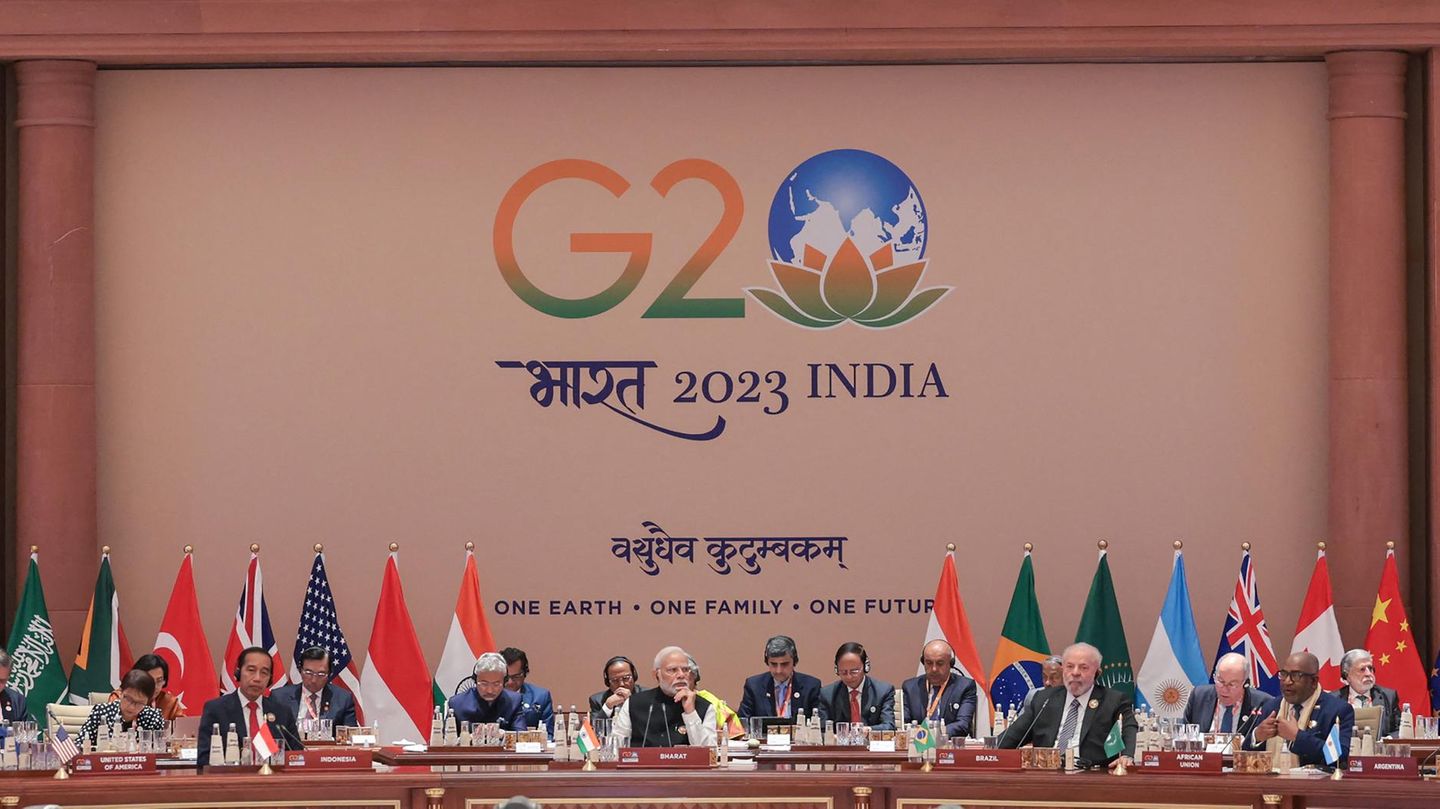Despite the dispute, the G20 summit in India ends with a joint final declaration. More has been achieved for the global south, less for climate protection. A balance sheet.
The dispute over how to deal with the Ukraine war has overshadowed the G20 summit of the leading industrialized and emerging countries in New Delhi. However, host India was able to prevent the meeting from failing – and also marked a symbolic step in terms of the weight of developing and emerging countries in the world. An overview of key results of the summit:
G20 summit finds compromise on Ukraine war
Unlike at the summit last year, the Russian war of aggression is no longer expressly condemned. Instead, reference is only made to relevant United Nations resolutions – and generally to the territorial integrity of states, i.e. the inviolability of borders. The compromise, agreed to by both the West and Russia and its partner China, prevented the summit from collapsing.
Global South
India’s Prime Minister Narendra Modi wanted to profile his country as the standard bearer of the global south by chairing the G20. The most tangible result is the admission of the African Union as a new member. This means that Africa is significantly more represented in the G20; previously only South Africa was a member.
Climate protection
Climate activists rate the final declaration of the summit as unambitious. A clear commitment to a rapid exit from coal, oil and gas, as demanded by environmental organizations, is missing. It merely reaffirms an old decision to reduce “inefficient” subsidies for these climate-damaging fossil fuels in the medium term. The G20 also reaffirm their goal of becoming climate-neutral by the middle of the century – that is, not emitting more greenhouse gases than can be sequestered. The caveat is that “different national circumstances” must be taken into account. However, the goal of tripling the capacity of renewable energies by 2030 is viewed positively.
Meeting in New Delhi
Who’s (not) there and what it’s about: Ten things you need to know about the G20 summit
International financial order
According to the US government, US President Joe Biden tried to win over partners for greater financial support for poorer countries. Among other things, this is intended to expand the capacities of the World Bank. The development bank lends money to poor countries on favorable terms in order to strengthen their economies and reduce poverty there. How successful Biden’s initiative was remains to be seen. Germany announced 305 million euros in hybrid capital for the World Bank. According to Finance Minister Christian Lindner, this is a special bond class that is intended to enable the World Bank to increase the lending volume for states. The financial injection has a “leverage effect that runs into the billion dollar range”.
World nutrition
In keeping with Russia’s spirit, there is the G20 call to ensure “prompt and unhindered supplies of grain, food and fertilizers/additives from the Russian Federation and Ukraine.” Moscow is calling for Western sanctions against Russia to be relaxed for its exports of agricultural products. In that case, the agreement to ship Ukrainian grain across the Black Sea, which was canceled by Kremlin chief Vladimir Putin in July, could also be renewed. “This is necessary to meet the needs of developing and least developed countries, particularly those in Africa,” the document says.

Infrastructure projects in response to China
On the sidelines of the summit, the European Union, the United States and partners launched a huge rail and shipping project. It is intended to better connect Europe, the Middle East and India and is seen as an answer to China’s “New Silk Road”.
Source: Stern
I have been working in the news industry for over 6 years, first as a reporter and now as an editor. I have covered politics extensively, and my work has appeared in major newspapers and online news outlets around the world. In addition to my writing, I also contribute regularly to 24 Hours World.




